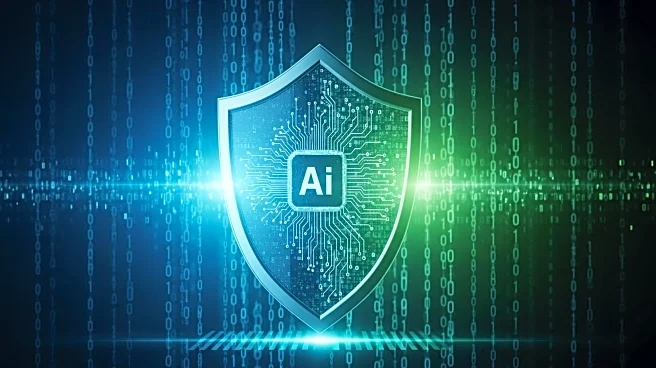What's Happening?
Chief Information Security Officers (CISOs) are increasingly focusing on the integration of artificial intelligence (AI) into cybersecurity functions. This shift is driven by AI's potential to enhance speed, scalability, and adaptability in security operations, which traditional tools may not fully provide. AI is being utilized in various security functions, including scam email blocking and access management. The technology is reshaping how CISOs approach cybersecurity, aiming to better protect organizations from growing threats. However, experts caution that while AI shows promise, its effectiveness across different industries remains uncertain. Some security professionals warn against over-reliance on AI, as it may lead to a false sense of security.
Why It's Important?
The integration of AI into cybersecurity is significant as it represents a potential leap forward in defending against increasingly sophisticated cyber threats. AI's ability to process large volumes of data quickly and adapt to new threats can provide organizations with a more robust security posture. However, the reliance on AI also introduces risks, such as the possibility of overestimating its capabilities. This could lead to vulnerabilities if organizations become complacent. The balance between leveraging AI's strengths and maintaining a critical perspective on its limitations is crucial for effective cybersecurity strategies.
What's Next?
As AI continues to be integrated into cybersecurity, organizations will need to monitor its effectiveness and adjust their strategies accordingly. This may involve ongoing training for security teams to understand AI's capabilities and limitations. Additionally, collaboration between industries could help share best practices and address common challenges. The development of AI technologies will likely continue, with a focus on improving accuracy and reliability in threat detection and response.
Beyond the Headlines
The ethical implications of AI in cybersecurity are an important consideration. As AI systems make more decisions autonomously, questions about accountability and transparency arise. Organizations must ensure that AI-driven security measures are implemented responsibly, with clear guidelines and oversight. Furthermore, the cultural shift within security teams to embrace AI technologies may require changes in organizational structures and processes.










